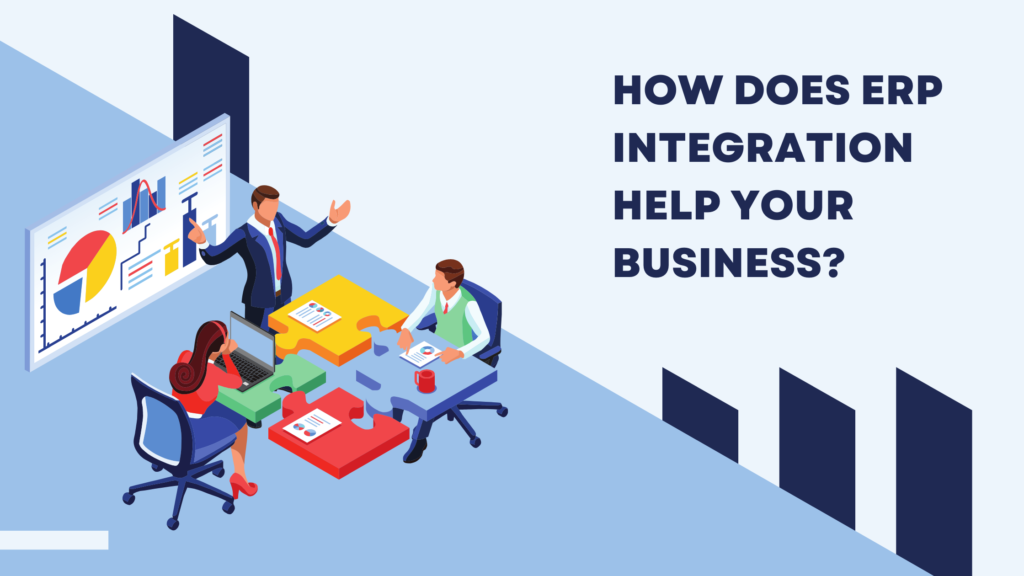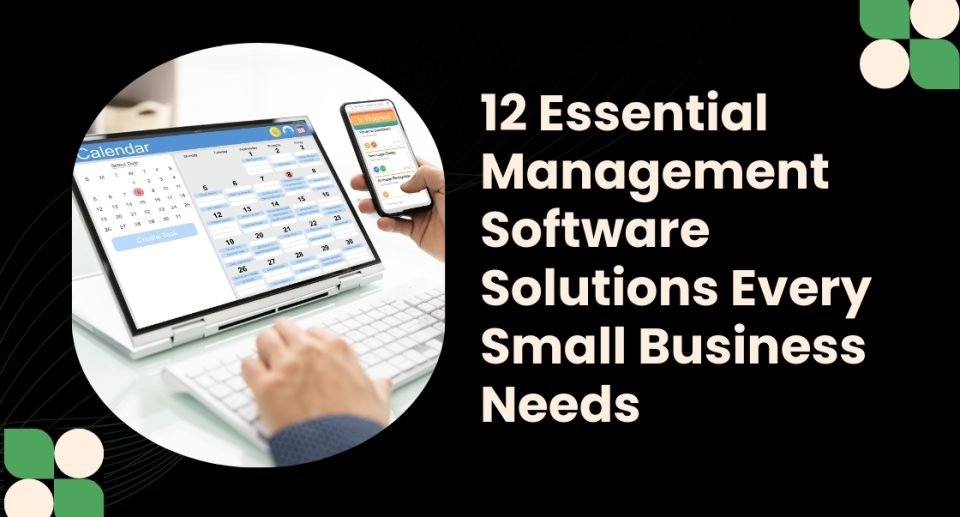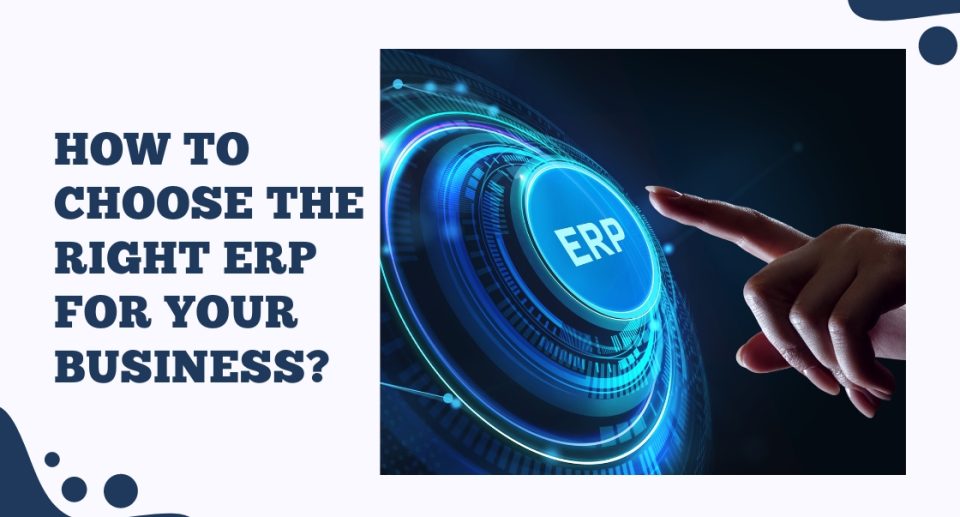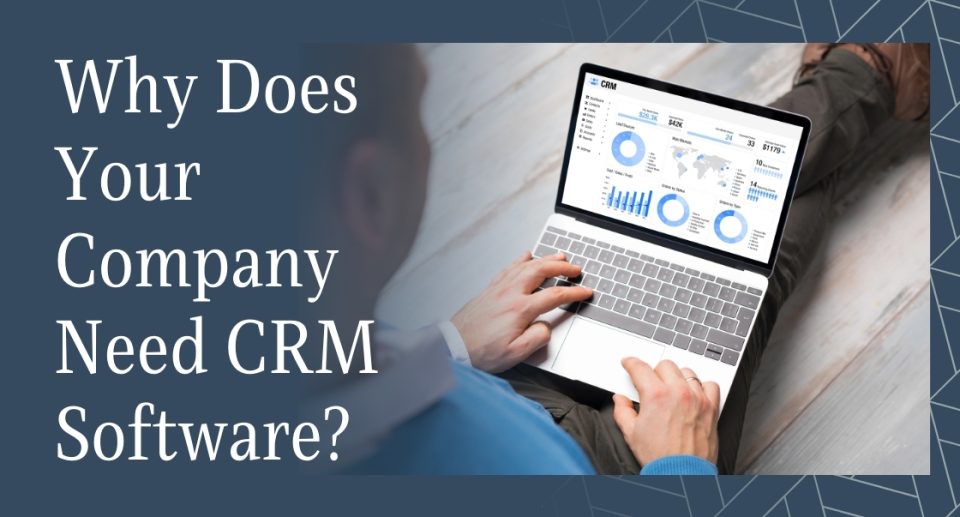
Running a business involves a lot of different tasks—like managing finances, handling inventory, and keeping track of customer orders. As your business grows, these tasks can become more complicated and harder to manage. This is where ERP integration comes in. It helps connect all your business operations into one system, making it easier to handle everything from one place.
In this article, we’ll explain what ERP integration is, how it works, and most importantly, how it can help your business run more smoothly, save time, and reduce costs. Let’s take a closer look at how integrating your business systems can make a big difference.
What is ERP Integration?
At its core, ERP (Enterprise Resource Planning) integration involves connecting various business functions—such as finance, human resources, inventory, and sales—into a single unified system. Rather than having separate software programs for each department, ERP integration consolidates everything into one platform. This creates a seamless flow of data across the entire organization.
In simple terms, ERP integration ensures that all your business processes are working together smoothly. Imagine no more manual data transfers between systems, no more silos, and most importantly, no more confusion or mistakes due to inconsistent data. The result? A more organized, efficient, and collaborative business environment.
Why is ERP Integration Important for Your Business?
If you’re running a business, chances are you already deal with a variety of tasks and processes across departments. Managing these without an integrated system can quickly become chaotic. ERP integration brings order and clarity, offering a centralized approach to business management.
Here are some reasons why ERP integration matters:
- Data Accuracy: With all systems connected, the chances of human error decrease significantly. You no longer have to worry about discrepancies between different databases.
- Operational Efficiency: When processes are automated and data flows smoothly, productivity soars. Employees spend less time on repetitive tasks and more time on value-driven activities.
- Cost Savings: By eliminating inefficiencies, businesses can cut operational costs. Less time spent on manual data entry and coordination means savings across the board.
Key Benefits of ERP Integration for Businesses
1. Improved Data Accuracy and Real-Time Insights
One of the biggest advantages of ERP integration is the accuracy and immediacy of data. When all departments operate from the same database, there’s no need for data re-entry, which reduces errors.
Real-time access to data means that decision-makers can make informed choices quickly. For instance, sales teams can see inventory levels instantly, and finance departments can track expenses as they happen. This level of visibility keeps everyone on the same page and helps businesses respond faster to opportunities or challenges.
2. Enhanced Productivity and Efficiency
An integrated ERP system allows you to automate processes that were once manual, such as invoicing, payroll, and inventory management. This frees up your team from routine tasks, allowing them to focus on more strategic initiatives.
For example, if you’re in sales, you no longer have to wait for inventory updates from the warehouse team or manually enter order information into multiple systems. Everything is handled in one system, speeding up the entire workflow and reducing delays.
3. Better Customer Service
When all departments share the same system, customer information and order histories are always up to date. This enables customer service teams to provide faster, more personalized support. If a customer calls about an order, for example, the representative can instantly view the status, reducing wait times and improving satisfaction.
With streamlined communication and real-time data, businesses can respond to customer inquiries and issues much faster, resulting in happier, more loyal customers.
4. Scalability for Growth
As your business grows, so do the demands on your operations. Whether you’re expanding to new locations or launching new products, your ERP system can scale with your business needs. ERP integration ensures that new departments, systems, or locations are added smoothly, without disrupting your workflow.
Instead of outgrowing your existing systems, an integrated ERP system evolves with you, supporting both day-to-day operations and long-term growth.
5. Streamlined Reporting and Analytics
Accurate, real-time reporting is another major benefit of ERP integration. When your business processes are interconnected, reporting becomes far easier and more reliable. You can generate comprehensive reports that give a snapshot of everything from financial performance to sales trends in minutes, not hours.
With powerful analytics tools, you can dive deeper into your data, identify areas for improvement, and forecast future trends. This leads to better decision-making and more effective business strategies.
How ERP Integration Impacts Different Business Areas
An integrated ERP system touches almost every area of your business. Let’s look at how it benefits different functions:
1. Financial Management and Accounting
ERP integration connects your finance and accounting departments to other business areas like sales, procurement, and inventory. This means less manual input for financial processes and faster, more accurate financial reporting. Automated invoicing, real-time bank reconciliation, and tax compliance all become much simpler with an integrated system.
2. Human Resources and Payroll
Managing payroll, employee data, and benefits across departments is time-consuming when done manually. An ERP system automates HR tasks such as payroll processing, employee record management, and benefits administration. HR departments can also ensure better compliance with labor laws, thanks to accurate, up-to-date records.
3. Supply Chain and Inventory Management
ERP integration helps businesses gain better control over inventory and supply chain operations. By syncing real-time data on inventory levels, order statuses, and supplier performance, businesses can reduce stockouts, avoid overstocking, and improve procurement processes.
Inventory management becomes proactive, not reactive, with integrated systems that automatically update stock levels based on incoming orders or shipments.
4. Sales and CRM
Sales teams benefit from ERP integration by gaining instant access to customer profiles, order histories, and preferences. This allows them to personalize their approach, offer tailored products or services, and close deals faster.
Furthermore, ERP systems integrate with CRM (Customer Relationship Management) tools, which helps businesses track customer interactions and improve customer loyalty.
5. Manufacturing and Production
In manufacturing, ERP integration ensures that production schedules are efficient, based on real-time data from sales orders and inventory levels. This leads to better resource allocation, fewer production delays, and reduced waste. Manufacturing processes are streamlined, ensuring that products are produced and delivered on time.
Challenges of ERP Integration and How to Overcome Them
While ERP integration offers a wide range of benefits, the process can come with some challenges. These might include data migration issues, resistance from employees, and the complexity of implementing a new system.
To overcome these challenges:
- Plan ahead: Make sure to thoroughly map out your business processes and objectives.
- Train your staff: Provide comprehensive training to ensure your team is comfortable with the new system.
- Consider professional help: Consult with an ERP expert to guide the integration process and address any roadblocks.
Best Practices for a Successful ERP Integration
A successful ERP integration requires a clear strategy. Here are some best practices to ensure smooth implementation:
- Define clear goals: Understand the specific benefits you hope to gain from ERP integration (e.g., faster decision-making, cost savings, etc.).
- Test thoroughly: Before going live, test the system thoroughly to make sure everything works as expected.
- Provide continuous support: Offer ongoing training and support to help your team get the most out of the system.
Unlocking Business Potential with ERP Integration
ERP integration can transform your business by streamlining processes, enhancing data accuracy, improving customer service, and enabling scalability. While it comes with challenges, the benefits far outweigh the difficulties, especially when businesses adopt best practices and seek expert support.
If you’re ready to enhance your business efficiency, consider implementing an ERP system tailored to your needs. Connect with an ERP development company in Pune to explore the possibilities for your business’s growth and ensure a seamless integration that supports long-term success.




